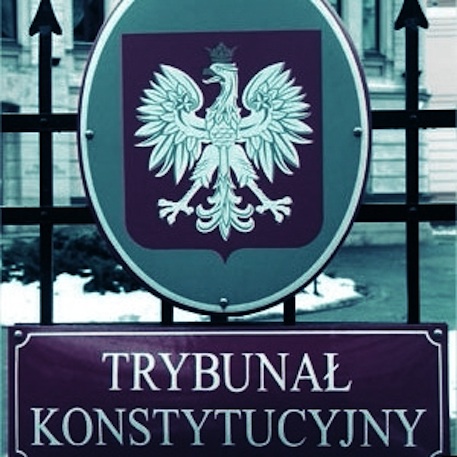
HFHR’s opinion on proposed amendment to Constitutional Tribunal Act
In the evening of 15 December another draft amendment to the Constitutional Tribunal Act was submitted in the Parliament. The Constitutional Tribunal ruled that the two previous amendments enacted in 2015 were partially unconstitutional.
The HFHR objects to the hasty conduct of the legislative works on important constitutional regulations. Moreover, the Helsinki Foundation thinks that the real purpose of the new law is to prevent the Constitutional Tribunal from discharging its constitutional duties.
The draft of the amendment has not been consulted with members of the public, experts and legal professionals. In his public address of 3 December 2015, President Andrzej Duda announced that a discussion on the Constitutional Tribunal’s work would be held among a broad community of experts. However, statements of representatives of the parliamentary majority suggest that a rapid legislative procedure will again be used in the works on the recent bill. “The draft law does not address any urgent matters that would justify the omission of consultations or such a hasty conduct of legislative works on a crucial constitutional issue”, says Barbara Grabowska-Moroz, a lawyer working with the HFHR.
Furthermore, the HFHR’s opinion emphasises that the introduction of the requirement of qualified majority of two-thirds of votes, which would apply to the procedure of adopting the Tribunal’s resolutions, is an arbitrary move. The actual purpose of the amendment is to prevent the Polish constitutional court in its current composition from adopting en-banc resolutions. Yet the bill’s sponsors argue that the en-banc ruling requirement is the consequence of the need for an in-depth and thorough examination of constitutional problems that have a crucial impact on the public good.
Under the proposed law, it would be impossible for the Tribunal to issue a decision supported by less than the qualified majority of its judges. This means that the operations of Poland’s constitutional court will be blocked.
The draft amendment to the Constitutional Tribunal Act also expands the composition of the Tribunal’s full adjudication panel, which is to include 13 instead of 9 judges. The bill also extends the requirement of en-banc ruling to the majority of case types. According to the HFHR, this will lead to the situation in which the Tribunal effectively loses its ability to adjudicate. The above requirements will result in the excessive length of the proceedings that involve individuals because more than 90 per cent of the cases heard by the Constitutional Tribunal are constitutional complaints and questions of law submitted by common courts. This will adversely affect the constitutional guarantee of the right to a court while the crippling of TK works is a stand-alone violation of citizens’ right to file constitutional complaints.
The latest amendment proposal also provides that any cases already heard by a panel of less than 13 judges will have to be re-opened. If this rule becomes law, about 100 proceedings will need to be re-instituted, which may paralyse the administrative and judicial works of the Constitutional Tribunal.


18.12.2015
 Cookies EN
Cookies EN